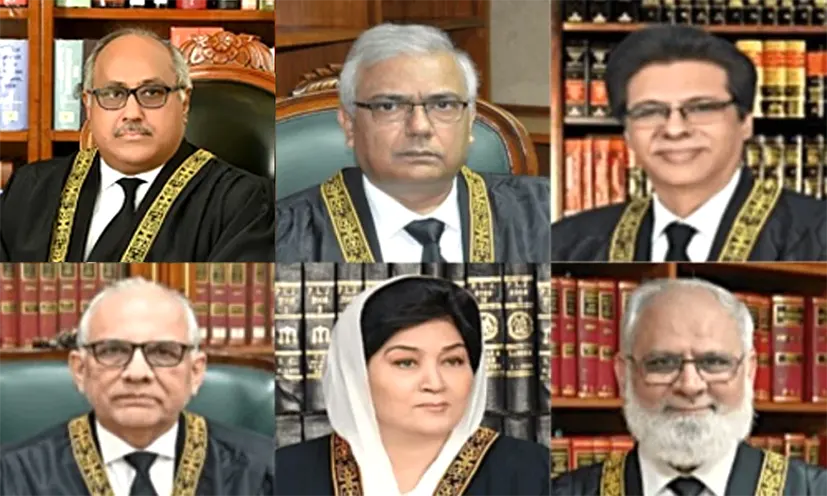Ijaz Kakakhel Islamabad
The Supreme Court on Monday asked the Attorney General for Pakistan to present a summary of the reserved decisions related to the trials of civilians by military courts on next date of hearing on March 28.
The Supreme Court issued directive to the attorney general as it resumed hearing intra-court appeals (ICAs) against its Oct 23 unanimous decision invalidating trials of civilians in military courts for their alleged involvement in the May 9 violence. The court had declared that civilians could not be tried in military courts but in criminal courts of competent jurisdiction established under the ordinary or special law of the land.
A five-member bench comprising Justices Ijazul Ahsan, Munib Akhtar, Yahya Afridi, Syed Mazahar Ali Akbar Naqvi and Ayesha Malik had unanimously declared the trial of civilians in military courts ultra vires the Constitution.
However, on Dec 13, in a 5-1 majority verdict, the Supreme Court suspended its verdict “conditionally” as there were ICAs pending for a final judgment.
Today, a six-member bench, headed by Justice Aminuddin Khan and including Justice Muhammad Ali Mazhar, Justice Syed Azhar Hasan Rizvi, Justice Shahid Waheed, Justice Musarrat Hilali and Justice Irfan Saadat Khan, took up the appeals. On March 19, former chief justice Jawwad S. Khawaja, who is one of the petitioners, had requested the court for an early hearing of the appeals, contending that the continued presence of civilians in military custody was “beyond compensation”.
At the outset of the hearing, Justice Khawaja’s counsel Ahmad Hussain objected to the size of the bench. He said 103 suspects were in custody. Their families wanted to join the case proceedings, he added and requested the court to allow them to witness the proceedings.Justice Khan observed that the courtroom was already fully occupied. The court has no objection, but how such a large number of people can be adjusted in the courtroom.
Justice Khawaja’s counsel requested the court to constitute a nine-member larger bench to hear the ICAs. Advocate Hussain argued that his client had already sought formation of a larger bench.









